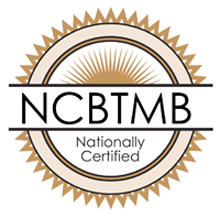Exercise is recommended to everyone because of its general health benefits. Obviously, it helps in weight loss and in building muscles. But these aren’t the only benefits you’ll get. Exercise can make you look younger. That’s right, the fountain of youth is in your local gym. Here’s how exercise can help you get that young look we all want to keep:
Silky, Smooth, Glowing Skin
A study from McMaster University in Ontario on the effects of exercise on the skin examined adults aged from twenty to eighty. The main goal was to discover if there is a change in the skin and its condition for people who are actively engaged in exercise routines versus people who rarely exercise. It was found that people who are exercising at forty have skin that is as elastic as people in their early thirties. McMaster researchers trace the cause back to, believe or not, sweating. If you exercise regularly, your skin will be cleared from impurities more often, leaving it glowing and healthy.
Loosey Goosey
Imagine a 90-year-old. They’re almost always slumped over, right? Well, a lot of that comes from limited flexibility and spinal support in younger years. Low flexibility in your 20’s and 30’s could cause some problems later on, the main ones being joint or muscle pain, and an overall hunched-over look. There are certain types of exercises that can help you loosen your muscles and joints, like yoga or pilates. But you can also increase your flexibility even if you are only into cardio or weightlifting. Just make sure that you are going to start and end with warm-up exercises, and focus on stretching both before and after exercising every single time.
Keep The Calories Burning
Exercise is always connected to calorie burn and transitively, metabolism. The more you run, lift, swim, stretch, etc. – the easier it is to keep your metabolism at a higher rate, even when you’re resting. This is the main reason why a lot of people engage in different kinds of exercises. If you keep your body guessing, it’s harder for your muscles, stamina, and metabolism to plateau (plateauing is when your fitness progress levels and you don’t see further improvements). When you age, your metabolism also gets a bit slower than the normal. This is why you need to schedule regular workouts and try to vary those workouts every two-to-three weeks. It helps you maintain a healthier body and keeps your metabolism at a steady, high rate, which helps keep weight off and our bodies looking younger.
Slow Your Cells
We age at the cellular level. At the chromosomal level, actually. At the tips of each chromosome is something called telomeres. Telomeres control a cell’s aging process, and as we age these telomeres get shorter and shorter. So longer telomeres are connected to living longer lives, or so the research suggests. Studies from the University of California San Francisco have found a link between regular exercise and the rate at which telomeres slow. The more you exercise on a regular basis, the longer it takes for telomeres to slow, and the longer your cells will live. You’ll not only feel younger, you’ll be physically younger – literally!
Less Stress
Exercise is a wonderful distraction from our stressful lives. Hiking, running, playing sports and other engaging activities are a great break from our day-to-day grinds. But the reason we actually feel great after exercising – and even better when we exercise on a regular schedule – is chemical. When we exercise, endorphins are released in our brains that reduce stress and make us more even-keeled. And we all know how stress and anxiety play a part in how we feel, both physically and mentally. Extended periods of high stress can have dramatic effects on our bodies’ functionality, including putting physical stress on our bodies that increases the negative effects of aging. So, exercise more, stress less, look and feel younger.
Posture Counts
Some people complain of posture problems, and it’s something that is inevitable as we age. Muscle loss and bone density are to blame, but there isn’t much to be done about either. What we can do is work on our posture in our younger/mid-life years and, of course, exercise. Strength training helps build our muscles to support our skeletons, particularly our spines, which keeps us taller for longer. There are also some interesting correlations between our psychological state and posture, and since we know exercise makes us mentally and emotionally feel better, it stands to reason that it helps our posture on the psychological level as well.
Exercise really can help you stay young both physically and mentally. But if you really want to make it work for you, a change in diet is essential. Drinking more water. Watch what you put into your body. Be mindful of how you go about your day in relation to how your body functions. A total change in lifestyle can help you become healthier – and, in a sense, younger.
SOURCES:
https://dailynews.mcmaster.ca/article/why-the-fountain-of-youth-might-taste-very-salty/
https://www.ucsf.edu/news/2013/09/108886/lifestyle-changes-may-lengthen-telomeres-measure-cell-aging




